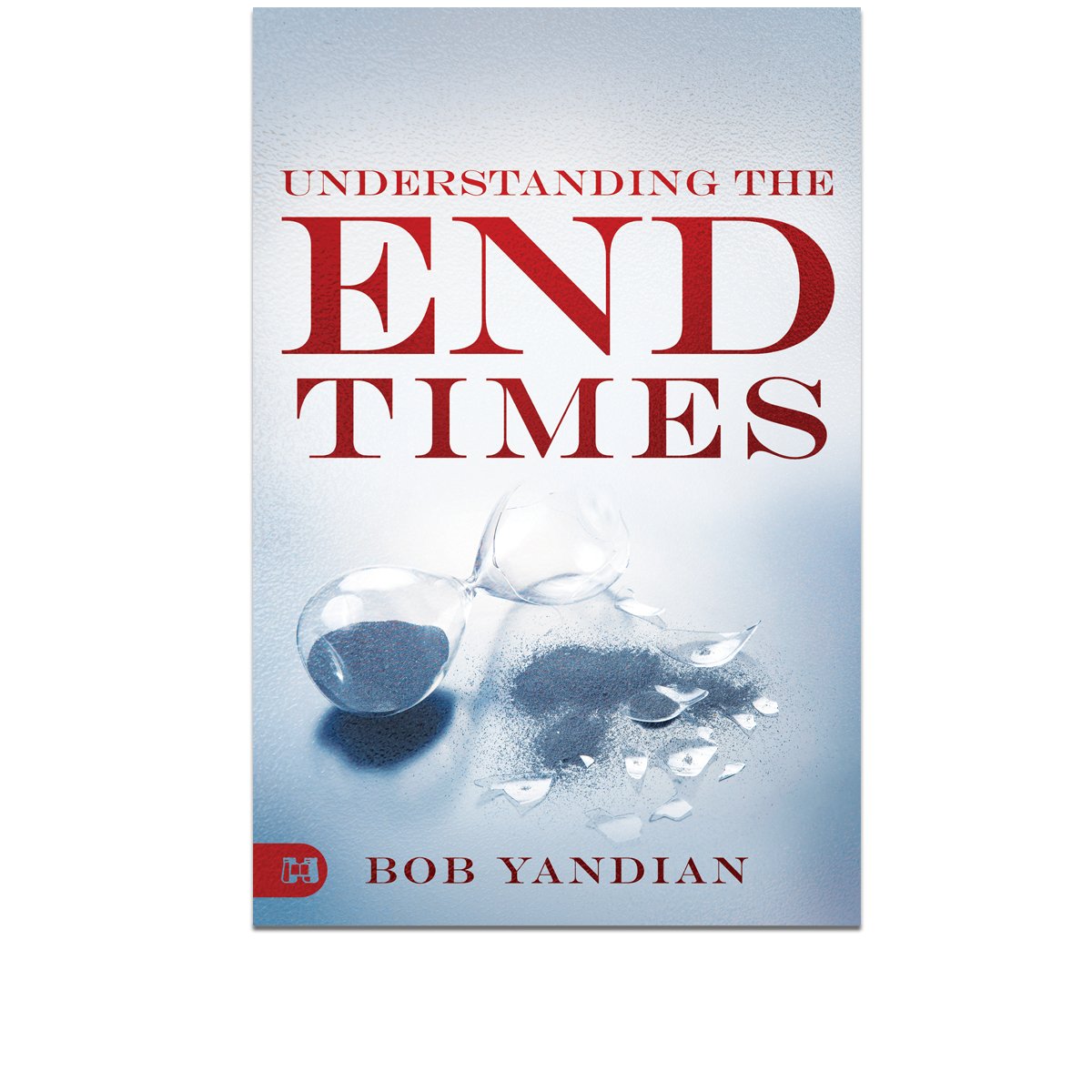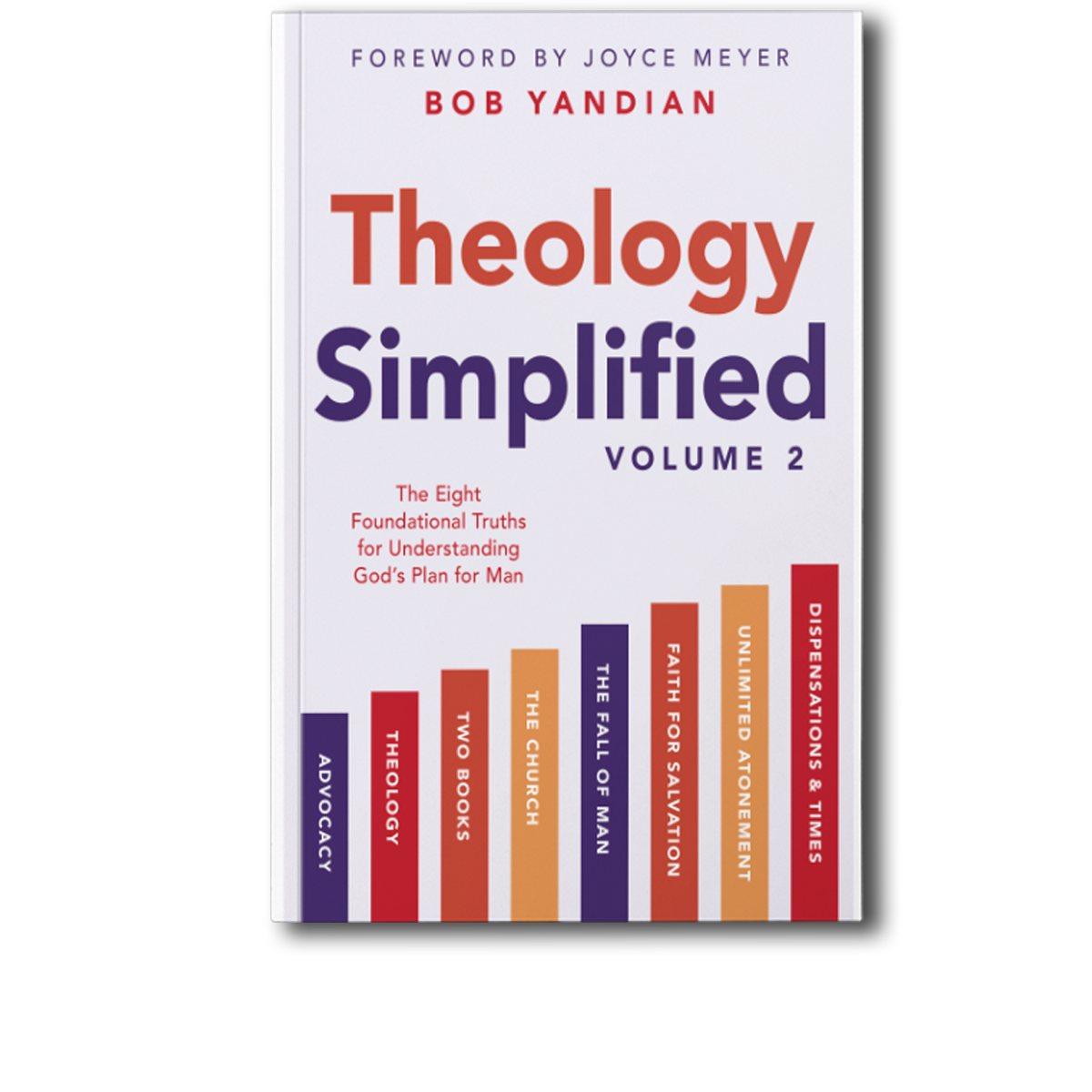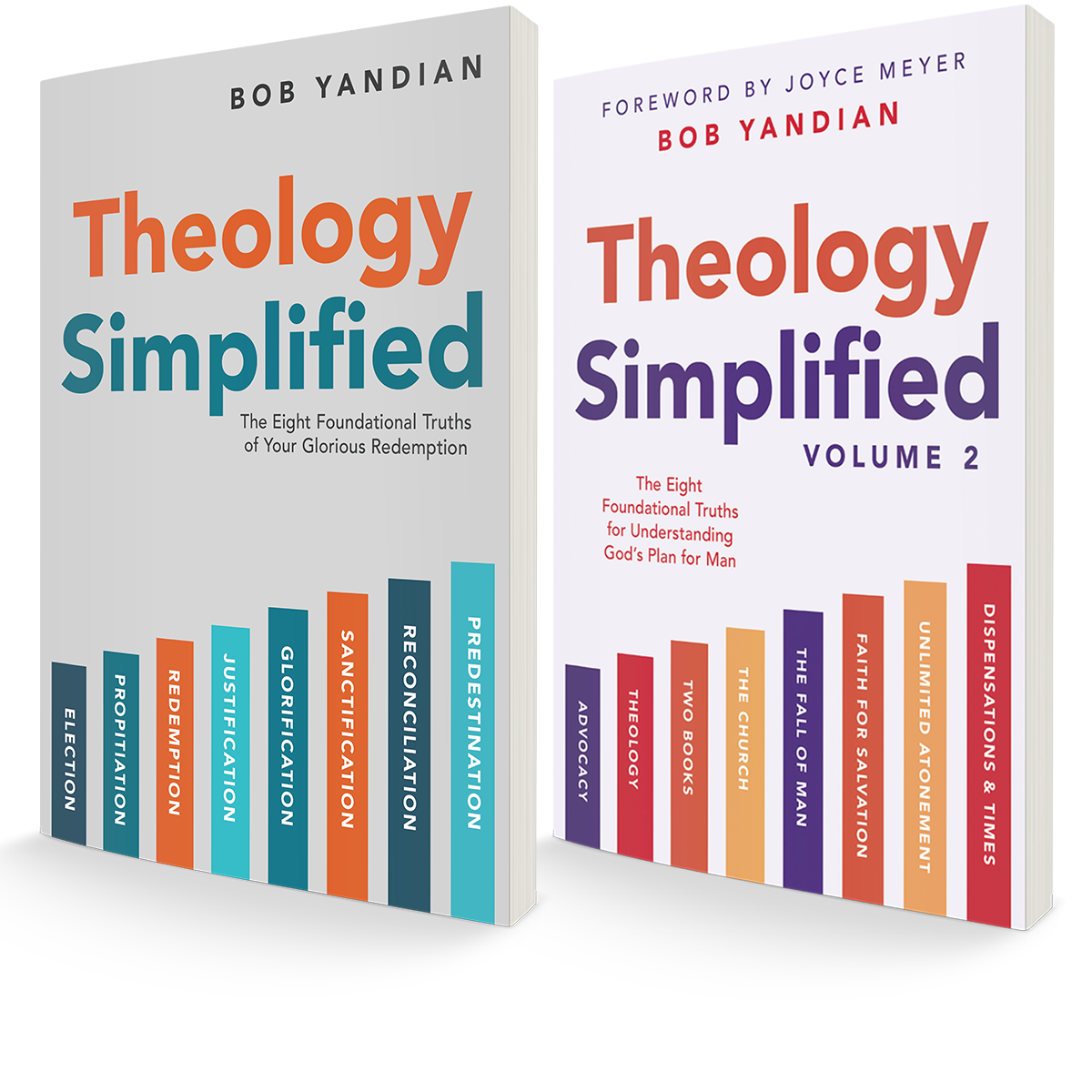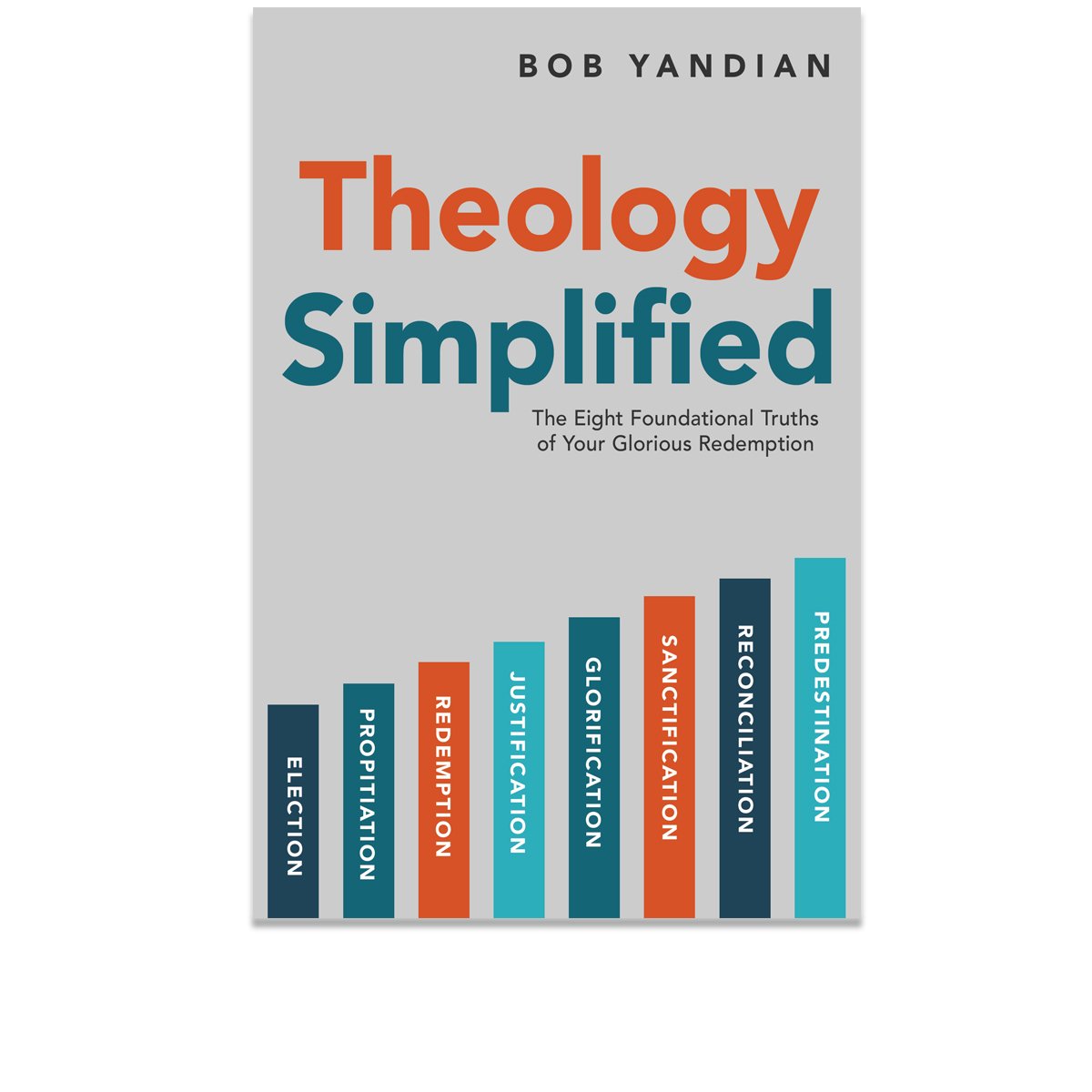The Greatness of the Church Age
Bob Yandian
Today we’re diving into one of the most important subjects in theology—God’s timeline. We’re taking a close look at time periods and dispensations. And I want to say up front: we are living in the greatest time period ever given to mankind—the Church Age.
We’re going to study how God works through distinct administrations—dispensations—and how the Church Age stands out as the crown jewel of them all. We’ll see why Paul calls it a “mystery,” how it fits into God’s eternal plan, and what it means for you and me today. Let’s go to the Word of God together.
Understanding Dispensations
The Greek word for “dispensation” is oikonomia, and it means an administrator over a household. It’s where we get our English word “economy.” This word shows us that a dispensation is a set time when God manages His household—His people—in a specific way. Think of it like this: each dispensation is an administration, just like we have presidential administrations in our country. One ends, another begins, and the priorities shift.
A dispensation doesn’t change God. He’s always the same. But how He chooses to interact with man, how He reveals Himself, and what He emphasizes in each period, can vary.
In the Word of God, we also find other words used to describe these dispensations: chronos (times), kairos (seasons), aion (ages), and palomeros (time periods). While each dispensation is a distinct era, there are often times and seasons within them that carry specific prophetic or redemptive importance.
There are seven main dispensations from the creation of man to the end of time:
Innocence – From Adam to the fall.
Conscience – From the fall to Noah’s flood.
Human Government – From the flood to the Tower of Babel.
Promise – From Abraham to Egyptian bondage.
Law – From Mount Sinai to the cross.
Grace (The Church Age) – From Pentecost to the Rapture.
The Millennial Reign – From the return of Jesus to the Great White Throne judgment.
We are now in the sixth dispensation—the Church Age. It is unlike anything before it and will not be repeated. This is why Scripture calls it “the mystery.”
A God Who Thinks in Progression
Contrary to what some believe, God thinks logically. He thinks in progression. He started something in Genesis that moves with purpose all the way to Revelation. God has a plan, and each dispensation builds on the last. And the One who reveals that plan is the Holy Spirit. Jesus Christ, the executor of the Godhead’s plan, brings it to pass. He created not only the visible world but also the invisible systems of time and dispensations.
Hebrews 1:1–2 tells us that in the past, God spoke in different time periods and in different ways to the fathers by the prophets. But in these last days, He speaks to us through His Son. That’s the shift—from the Old Testament to the New. From law to grace. From shadows to reality. And from prophecy to fulfillment.
Jesus Christ not only created the world but also the dispensations. The Church Age didn’t begin until the day of Pentecost. And that time period was hidden from the prophets. It wasn’t revealed until after Jesus ascended and the Holy Spirit was poured out.
Approaching God: Then and Now
Here’s an important truth: how God approached man changed from dispensation to dispensation. But how man approaches God has always remained the same—by faith.
In the Garden, God walked with Adam and Eve. Later, He appeared in clouds and fire, through angels, and prophets. He gave laws and sacrifices to reveal His character and standards. But for man, the way to draw near to God never changed. It’s always been by faith.
Hebrews 11 says, “By faith Abel… By faith Enoch… By faith Noah… By faith Moses.” No matter the dispensation, faith has always been the way to God.
The Dispensation of the Mystery
Ephesians 3:1–6 tells us plainly: the Church Age is a mystery. The Greek word is musterion—a truth that was hidden in the past but is now revealed. This mystery was not known to the Old Testament prophets. It wasn’t even fully understood by the apostles until the Spirit came.
Jesus was the first to mention the Church in Matthew 16 when He said, “I will build My Church, and the gates of hell will not prevail against it.” But His disciples didn’t know what He meant. It wasn’t until Acts 2, when the Holy Spirit came, that the Church truly began.
The Church Age is a time when Jews and Gentiles are united into one body—the body of Christ. Ephesians says that we are “fellow heirs,” members of the same body. This was radical! In the Old Testament, Gentiles were outsiders. But in the Church Age, we’re co-equal in Christ.
This mystery includes some powerful truths that were never seen before:
The individual priesthood of every believer.
The indwelling of the Holy Spirit.
The infilling of the Spirit and operation in spiritual gifts.
The Church itself—universal and local.
The Body of Christ.
The Bride of Christ.
A message of grace to all nations.
This is what makes our time so unique. In no other dispensation did ordinary people have access to God like we do. No other time offered the Holy Spirit living inside every believer, empowering us to live victorious lives and be witnesses in the world.
What the Mystery Doesn’t Include
The mystery doesn’t include everything. There are major events that fall outside the Church Age and were clearly foretold in the Old Testament:
The death, resurrection, and ascension of Jesus.
The Tribulation.
The Millennial reign of Christ.
The Eternal State.
These were known and prophesied. But the Church and its unique calling? That was hidden until now.
However, the Rapture of the Church is part of the mystery. First Corinthians 15:51 says, “Behold, I show you a mystery: We shall not all sleep, but we shall all be changed.” That’s the Rapture. It wasn’t taught in the Old Testament or the Gospels. It was revealed to Paul and recorded in the epistles.
This is the event that closes the Church Age. When the last believer accepts Christ and the full number of Gentiles has come in (Romans 11:25), the trumpet will sound, and we’ll be caught up to meet the Lord in the air. Until then, we live in the greatest time period ever given—grace.
The Mystery and Obedience
Romans 16:25–26 says that understanding the mystery brings stability and obedience to the believer. That’s why we need to feed on the epistles. They are written specifically for our time and reveal our rights, privileges, responsibilities, and authority in Christ.
The Old Testament is still the Word of God. It teaches us, gives us types and shadows, and confirms what we know in the New. But the meat of the Word for the Church is in the epistles. They are God’s personalized letters to His Church.
God’s Eternal Purpose
Ephesians 3:8–11 explains why God gave us this mystery: “To the intent that now unto the principalities and powers in heavenly places might be known by the Church the manifold wisdom of God.” In other words, God uses the Church to teach angels about His wisdom!
Just as Jesus stood against Satan, now the Church—filled with the Spirit, walking in the Word, and clothed in authority—carries on His mission. Satan thought he had won when Jesus went to the cross. But on Pentecost, 120 “little Christs” walked down from the upper room, filled with power. And that number has grown into millions worldwide.
Satan can’t stop the Church. The gates of hell won’t prevail. And one day soon, Jesus will call us home. But until then, we live in the Church Age—the dispensation of grace, power, and mystery.
In Closing
This teaching isn’t just for seminary students or theologians. It’s for every believer. You are part of something incredible—God’s masterpiece of redemption. The more you understand it, the more stable your life becomes. Study the epistles. Understand the mystery. And walk in the fullness of what God has provided in this great dispensation of the Church.




